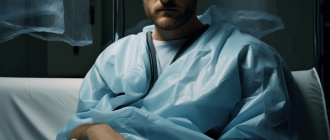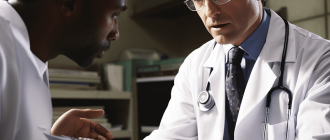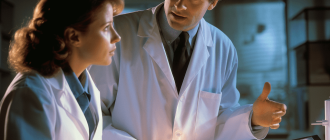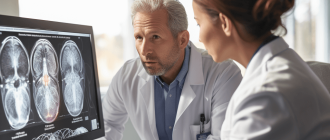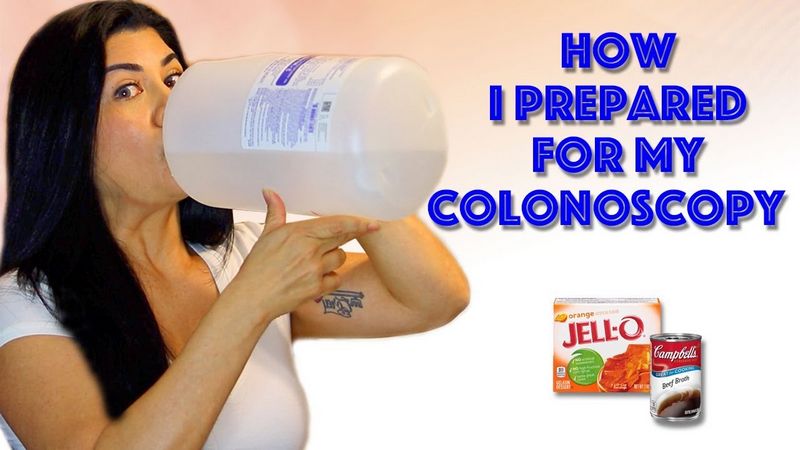
“Guidelines on Getting Ready for a Colonoscopy and Biopsy Procedure” or “Steps to Effectively Prepare for a Colonoscopy with Biopsy Examination”
A colonoscopy with biopsy is a significant procedure that requires careful preparation for optimal results. This article is intended to serve as a comprehensive guide for patients who are about to undergo this process.
The procedure involves the use of a thin, flexible tube called a colonoscope to examine the colon’s lining. The colonoscope has a tiny camera at its tip, enabling the doctor to visualize any irregularities in the colon. In some cases, small tissue samples, or biopsies, may be taken for further examination. Preparing for a colonoscopy with biopsy can seem daunting, but with proper knowledge and planning, it becomes more manageable.
“Preparation is the key to a successful colonoscopy. Your efforts greatly assist your healthcare team and contribute to the accuracy of your test.”
In the following sections, we will walk you through everything you need to know about the preparation process, including dietary restrictions, the bowel prep phase, medication adjustments, and what to expect during the procedure.
How do you prepare for a colonoscopy biopsy?
Preparing for a colonoscopy biopsy involves several important steps to ensure that the procedure is as effective and safe as possible.
Step One: Discuss with Your Doctor
Before you begin preparing for your colonoscopy biopsy, it’s important to discuss with your doctor any medical conditions you may have or medications you are taking. This includes over-the-counter drugs, dietary supplements or vitamins. Some medications, such as blood thinners, may need to be adjusted or stopped before the procedure.
Step Two: Start a Clear Liquid Diet
Usually, the day before the procedure, you’ll need to switch to a clear liquid diet. That includes water, clear broths, tea, coffee (without milk), and clear fruit juices (without pulp). Solid foods, dairy products, anything red or purple (like grape juice or beetroot) should be avoided as they can interfere with the results.
Step Three: Take a Bowel Prep
Your doctor will usually prescribe a special bowel prep that helps clean out your colon. This often involves drinking a large volume of a special cleansing solution or taking laxatives. It’s crucial to follow your doctor’s instructions closely as a well-cleaned colon is key for the procedure’s success.
Step Four: Arrange for a Ride Home
Since you’ll be sedated for the procedure, you’ll need someone to drive you home afterwards. You should also plan to rest for the remainder of the day following your colonoscopy biopsy.
Note: It’s important to follow all of your doctor’s instructions carefully. If you’re unsure about any step of the preparation process, don’t hesitate to call your doctor’s office for clarification.
Dietary Preparation
Preparing for a colonoscopy involves making some important changes to your diet a few days before the procedure. The goal is to clean out your colon so that your doctor can see any polyps or other abnormalities during the colonoscopy.
4-5 days beforeStart a low-fiber diet. Avoid whole grains, nuts, seeds, dried fruits, and raw fruits or vegetables.
| Days before Procedure | Dietary Changes |
|---|---|
| 3 days before | Continue the low-fiber diet and start drinking plenty of clear liquids like water, broth, tea, or clear juices. |
| 2 days before | Start a clear liquid diet. No solid foods should be consumed. Increase fluid intake to prevent dehydration. |
| 1 day before | Continue the clear liquid diet. In the evening, take a prescribed bowel prep solution to clean out your colon. |
| Day of the procedure | Continue clear liquid diet. Do not eat or drink anything two hours before the procedure. |
Remember, it’s important to follow your doctor’s instructions closely. If your colon isn’t adequately prepared, your doctor may not be able to see everything they need to during the colonoscopy, and you may have to repeat the procedure.
Medication and Supplements
When preparing for a colonoscopy with biopsy, it is critical to understand how your current medications and supplements could affect the procedure. Some medications and supplements may need to be adjusted or temporarily stopped.
Medications
Several types of medications can affect the results of a colonoscopy. For example, blood-thinning medications, such as warfarin or aspirin, can increase the risk of bleeding during a biopsy. Other medications, like iron supplements, can make it harder for the doctor to see the inside of your colon clearly. You should inform your doctor about all the medications you are currently taking. Your doctor may advise you to stop or reduce the dosage of certain medications before the procedure.
Supplements
Like medications, certain supplements can also affect the colonoscopy results. Particularly, supplements that contain iron can darken the stool, making it more difficult for the doctor to see the colon’s lining during the procedure. Therefore, it might be necessary to stop taking these supplements a few days before the colonoscopy. Always inform your doctor about any supplements you are taking.
Note: It’s essential not to stop any medication or supplement without consulting your healthcare provider. They will provide specific instructions based on your health condition and the type of medication or supplement you are taking.
Consultation with Your Healthcare Provider
Before undergoing a colonoscopy with a biopsy, it’s crucial to have a thorough consultation with your healthcare provider. This will allow you to understand the procedure fully, and it will provide an opportunity for the doctor to assess your medical history and current health status.
During the consultation, be prepared to provide your healthcare provider with detailed information about any medications you are currently taking, including over-the-counter drugs, vitamins, and supplements. Certain medications can interfere with the procedure or affect the results, so it’s essential to disclose this information to your doctor.
Your healthcare provider will also explain the colonoscopy process, including the biopsy, in detail. They will explain how the procedure is performed, what they are looking for, and how the biopsy samples will be used. This is your chance to ask any questions you may have about the colonoscopy and the biopsy.
Additionally, your healthcare provider will provide instructions on how to prepare for the colonoscopy. This usually involves a special diet and bowel preparation. Following these instructions precisely is important for the success of the procedure.
Remember, a colonoscopy with a biopsy is a routine procedure, and your healthcare provider is there to guide you through the process. Don’t hesitate to voice any concerns or questions you may have during your consultation.
What diet should be followed before a colonoscopy biopsy?
Preparing for a colonoscopy biopsy includes a specific diet to ensure your colon is clean for the procedure. A clear liquid diet is typically recommended by doctors a day or two before the colonoscopy. This diet includes clear broths, black coffee, tea, clear fruit juices, popsicles, and gelatin. It’s important to avoid any red or purple-colored drinks or gelatin, as they can stain the colon and interfere with the results.
It’s also recommended to avoid solid foods, milk, and dairy products. Eating small, frequent meals may help curb your hunger. Drinking plenty of clear liquids not only keeps you hydrated but also helps to flush out your system.
It’s essential to follow your physician’s instructions about the pre-colonoscopy diet. If the colon is not adequately cleaned, the doctor may not see polyps or other problems in the colon, and you may have to repeat the procedure.
After the procedure, your physician will provide guidelines to help you transition back to your regular diet. This usually involves starting with light, easily digestible foods and gradually adding back in your regular foods.
Clear Liquid Diet
One of the essential steps in preparing for a colonoscopy with biopsy is adhering to a clear liquid diet. This diet is necessary because it helps to clear the intestines of any residual matter that might interfere with the visibility during the procedure.
A clear liquid diet comprises foods and drinks that are transparent and free from any solid or pulp components. These include clear broths, clear fruit juices without pulp, water, clear sodas, plain gelatin, and tea or coffee without milk or cream. It’s crucial to avoid colored drinks like orange juice or red gelatin, as they could be mistaken for blood or inflammation during the colonoscopy.
Although this diet might seem restrictive, it’s only temporary. You will need to follow it for about one or two days before your colonoscopy. Remember, it’s a critical step to ensure that the doctor gets a clear view of your colon during the procedure. Always consult with your healthcare provider to understand the specifics of the clear liquid diet and any potential modifications if necessary.
Also, it’s important to note that a clear liquid diet does not provide all the necessary nutrients needed for health maintenance. Therefore, it should not be followed for a long period unless recommended by your doctor.
Low-Residue Diet
A low-residue diet is often recommended prior to a colonoscopy with biopsy, as it aids in thoroughly cleaning out the colon. This diet is designed to minimize the amount of food that remains in the digestive tract which in turn reduces stool and eases bowel movements.
Guidelines for a Low-Residue Diet
There are several guidelines to follow when adhering to a low-residue diet:
- Avoid high-fiber foods such as whole grains, nuts, seeds, fruits with skins, and vegetables.
- Opt for refined grains like white rice, pasta, and bread.
- Lean meats, poultry, fish, and eggs can be consumed.
- Dairy should be limited, but small amounts of milk or cheese may be acceptable.
- Avoid spicy foods and alcohol.
- Drink plenty of clear liquids like water, broth, or apple juice.
Sample Low-Residue Diet Menu
Here is a sample menu for a day on a low-residue diet:
- Breakfast: Scrambled eggs with white toast and a glass of apple juice.
- Lunch: Grilled chicken breast with white rice and a cup of broth.
- Dinner: Baked fish with mashed potatoes and a glass of water.
- Snack: Cup of applesauce or a banana.
Always remember to consult with your healthcare provider or a dietitian to ensure the diet is suitable for your specific health needs and conditions, especially if you have any underlying health issues.
What steps are involved in preparing for colonoscopy biopsy?
Preparing for a colonoscopy biopsy involves a few steps to ensure that your colon is clean for the procedure. This generally involves diet changes, a bowel prep solution, and possibly other medications. Here are the steps you should follow:
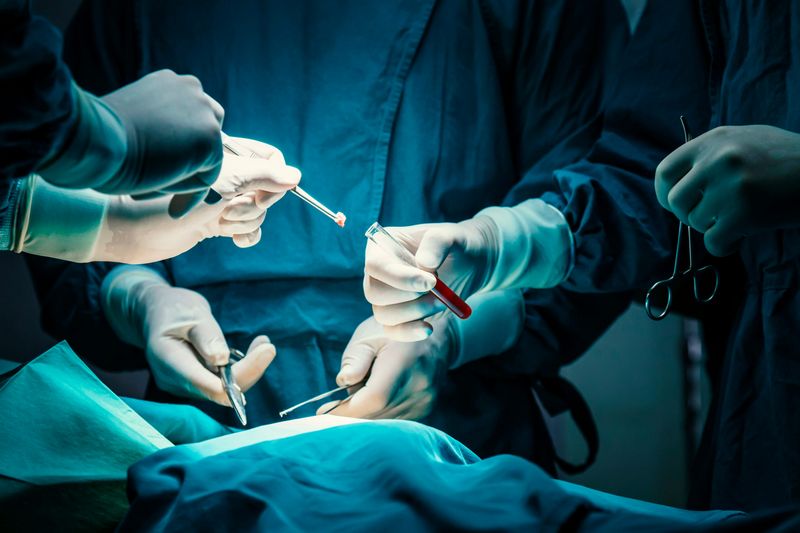
| Step | Description |
|---|---|
| 1. Consult with your doctor | Tell your doctor about any health conditions or medications you’re taking. You may need to stop taking certain medications before the colonoscopy. |
| 2. Diet changes | A few days before the procedure, you’ll need to start a low-fiber diet. This means avoiding whole grains, nuts, seeds, dried fruit, and raw fruits or vegetables. |
| 3. Bowel prep solution | The day before the colonoscopy, you’ll drink a bowel prep solution. This will induce diarrhea to clean out your colon. |
| 4. Fasting | After midnight on the day of your procedure, you should not eat or drink anything except clear liquids until after your colonoscopy. |
| 5. Arrival for the procedure | Arrive for your procedure with plenty of time to spare. You’ll need to complete paperwork and prep for the procedure. You’ll also need someone to drive you home afterward, as you’ll be sedated for the procedure. |
Remember, each person is different, so your doctor may give you specific instructions based on your health history and the specific type of colonoscopy you’re having. Always follow your doctor’s instructions carefully.
Scheduling the Procedure
The scheduling of a colonoscopy with biopsy is a critical aspect of the preparation process. It’s important to make the appointment at a time that fits your schedule and allows for ample preparation.
Setting the Date
Typically, medical professionals recommend that colonoscopies be scheduled early in the morning. This allows you to start the necessary fasting and bowel prep the night before, ensuring that your colon is fully cleaned out by the time of the procedure. It’s crucial to follow the specific instructions provided by your doctor for the bowel prep, as a clean colon is essential for the colonoscopy to be successful.
Remember: If your colon is not properly cleaned, the doctor may not be able to see polyps or other abnormalities clearly, which could lead to a missed diagnosis or the need for a repeat procedure.
Time Off Work
Given that you’ll need to fast and use bowel prep medicines the day before your colonoscopy, you may want to take this day off work. You’ll also need to arrange for the day of the procedure off, as you’ll be sedated during the colonoscopy and will need time to recover afterwards.
Note: You will also need someone to drive you home after the procedure, as the sedation can make it unsafe for you to drive or take public transportation on your own.
Purchasing Supplies
Before you begin the preparation process for your colonoscopy with biopsy, it is essential to purchase the necessary supplies. These include:
- Bowel Prep Kit: Your doctor will likely prescribe a bowel prep kit. This is a medication that cleanses your colon. You will need to follow the instructions provided with the kit carefully.
- Clear Liquids: You will need to stick to a clear liquid diet the day before your procedure. This includes broths, teas, and clear juices. Avoid anything that is red or purple in color.
- Soft, Easy-to-Digest Foods: For the days leading up to your colonoscopy, it’s recommended to eat soft, easy-to-digest foods like white rice, chicken, fish, and eggs.
Remember, preparing for a colonoscopy is a crucial step to ensure the procedure goes smoothly and effectively. Proper preparation allows your doctor to clearly see inside your colon and accurately identify and biopsy any abnormalities.
Note: Always consult with your doctor or pharmacist before purchasing any over-the-counter medications or supplies to ensure they will not interfere with the procedure or any medications you may be taking.
Preparation Day
The day before your colonoscopy is crucial for the success of the procedure. The goal is to completely clean your colon, which will allow the doctor to examine it thoroughly. Here are the steps you should follow:
- Modify Your Diet: On the day before the procedure, you should only consume clear liquids. This includes broth, tea, coffee, clear juices, popsicles, and Jell-O. Avoid anything that is red, blue, or purple, as it can be mistaken for blood during the procedure.
- Take Laxatives: Your doctor will prescribe a strong laxative that you will need to take at specific times during the day. This will induce diarrhea to clean out your colon. Be sure to stay close to a bathroom.
- Stay Hydrated: With the laxatives causing frequent bowel movements, there’s a risk of dehydration. Make sure to drink plenty of clear liquids to stay hydrated.
- Rest: It’s important to take it easy on preparation day. Try to rest and relax as much as possible. You may feel tired from the diet and the effects of the laxative.
Remember, the better you prepare, the easier it will be for your doctor to spot any abnormalities during the colonoscopy. If your colon isn’t properly cleaned out, you might have to repeat the procedure. So, make sure to follow all the instructions carefully.
What laxatives are used for colonoscopy prep?
There are several types of laxatives that doctors may recommend for colonoscopy preparation. The choice of laxative often depends on the patient’s health condition, personal preference, and the doctor’s experience.
One of the most commonly used laxatives is Polyethylene Glycol 3350 (PEG), which is a type of osmotic laxative. PEG works by drawing water into the colon, which helps to flush out waste. This laxative is usually mixed with a flavored electrolyte solution and is consumed in large amounts over a few hours.
Bisacodyl is another type of laxative used for colonoscopy prep. It is a stimulant laxative that triggers the muscles in the colon to contract and push out the stool. Bisacodyl is often used in combination with PEG for a more effective cleanse.
Sodium phosphate tablets, another type of osmotic laxative, can also be used for colonoscopy prep. However, these tablets are not recommended for people with kidney disease or heart failure, as they can cause dehydration and electrolyte imbalance.
It’s important to remember that each of these laxatives should be used as directed by your doctor to ensure a successful colonoscopy. Always talk to your doctor if you have any concerns or questions about your colonoscopy prep.
Types of Laxatives
There are different types of laxatives, and they work in various ways. In the context of preparing for a colonoscopy with biopsy, laxatives are used to clean out the colon. Here are the main types:
1. Stimulant laxatives: These laxatives increase the rhythm of the colon, leading to more frequent bowel movements. They are commonly used in colonoscopy preparation. Examples include Bisacodyl and Senna.
2. Osmotic laxatives: These laxatives draw water into the colon from the surrounding body tissues to soften the stool and make it easier to pass. Examples include Polyethylene Glycol (PEG).
3. Bulk-forming laxatives: These laxatives absorb water to form soft, bulky stool, prompting normal contraction of intestinal muscles. These types of laxatives are less commonly used in colonoscopy preparation. Examples include Psyllium and Methylcellulose.
4. Stool softeners: Also known as emollient laxatives, these soften the stool by increasing the amount of water it absorbs from your intestines. Docusate is a common stool softener.
Remember: Always follow your doctor’s instructions when using laxatives for colonoscopy preparation. Using them incorrectly can lead to dehydration or electrolyte imbalances.
Preparing and Taking Laxatives
Preparing for a colonoscopy often requires a bowel prep process to clean out your colon. This is usually done through the use of laxatives. Here are some steps to guide you through the process.
Step 1: Understand the Purpose
The main purpose of taking laxatives before a colonoscopy is to clear the bowel of all solid matter. This allows the doctor to clearly see your colon during the colonoscopy and perform a biopsy if necessary.
Step 2: Follow Your Doctor’s Instructions
Your doctor will provide specific instructions on what type of laxative to take, how much to take, and when to take it. It’s crucial to follow your doctor’s instructions to the letter.
Step 3: Stay Hydrated
When taking laxatives, it’s important to stay hydrated. Dehydration can occur as a result of the laxatives cleaning out your system. Drink plenty of clear liquids like water, broth, or apple juice to avoid this.
Step 4: Prepare for Side Effects
Common side effects of laxatives include bloating, nausea, and abdominal cramping. If you experience severe discomfort or pain, contact your healthcare provider immediately.
Remember, the goal is to have a successful colonoscopy with biopsy. Proper preparation, including taking laxatives as instructed, plays a crucial role in achieving this outcome.
How long does it take to prep for a colonoscopy biopsy?
The preparation for a colonoscopy biopsy usually starts a few days before the procedure. It’s crucial to follow your doctor’s instructions closely to ensure the colon is completely clear for the procedure. The preparation time may vary slightly depending on your doctor’s specific instructions and your personal medical condition.
Typically, the preparation involves a two-step process:
1. Dietary changes: You will need to adjust your diet a few days prior to the procedure. This usually involves eating a low-fiber diet to help clear the bowels. This includes avoiding whole grains, nuts, seeds, raw fruits and vegetables. You may also be asked to avoid eating or drinking anything with a red or purple color as these could be mistaken for blood during the procedure.
2. Bowel prep: The day before the procedure, you will need to take a bowel prep solution. This is a laxative that will clear your colon. You’ll start taking this solution in the afternoon or evening, and you should expect to spend a lot of time in the bathroom as it will cause diarrhea. It’s important to stay hydrated during this time, so make sure to drink lots of clear liquids like water, broth, or sports drinks.
Overall, the prep for a colonoscopy biopsy can take several days due to the dietary changes and bowel prep, but the most intensive part of the prep usually occurs in the 24 hours leading up to the procedure.
Timeline
Here is a general timeline you can follow when preparing for a colonoscopy with biopsy:
- One week before the procedure:
- Discuss any medications you’re taking with your doctor. Some may need to be adjusted or stopped.
- Start to modify your diet. Avoid seeds, nuts, corn, and other high-fiber foods.
- Three days before the procedure:
- Switch to a low-fiber diet. This includes foods like white bread, rice, and pasta.
- Two days before the procedure:
- Stock up on clear liquids like broth, gelatin, and clear juices. These will be your main source of nutrition the day before the procedure.
- One day before the procedure:
- Start your clear liquid diet. Do not consume any solid foods.
- Begin taking your bowel prep as instructed by your doctor. The goal is to clear out your colon.
- The day of the procedure:
- Continue with your clear liquid diet. Do not eat or drink anything two hours before your procedure.
- Take any pre-procedure medication as prescribed by your doctor.
- Arrive at the hospital or clinic in time. Make sure you have someone to drive you home afterwards.
Remember, this timeline might vary based on your doctor’s instructions and your personal medical history. Always follow your doctor’s advice when preparing for a colonoscopy with biopsy.
What should I do the day before a colonoscopy biopsy?
The day before a colonoscopy biopsy is crucial for the success of the procedure. It is necessary to properly prepare your body, especially the colon, for the procedure. Here are some steps you can follow:
1Start a clear liquid diet. This includes broth, clear juices, water, tea, coffee, popsicles, and gelatin.
| Step | Instructions |
|---|---|
| 2 | Avoid drinking or eating anything after midnight, unless your doctor advises otherwise. |
| 3 | Take a laxative as prescribed by your doctor. This is usually in the evening. Make sure to stay hydrated while taking laxatives. |
| 4 | If you take any medications, discuss with your doctor about which ones you should take or avoid on the day before the procedure. |
Remember, the aim is to have a clear colon for the doctor to get a clear view during the biopsy. Therefore, follow your doctor’s instructions diligently. If you are unsure about anything, do not hesitate to ask your doctor or the medical team.
Final Instructions
Proper preparation is essential for a successful colonoscopy with biopsy. In this final stage, there are some key instructions you need to follow:
- Do not eat or drink anything after midnight the night before your procedure, unless instructed otherwise by your doctor.
- On the day of the procedure, it is crucial that you have someone available to drive you home after the colonoscopy. The sedatives used during the procedure can impair your ability to drive.
- Bring a list of all your medications, including over-the-counter drugs and supplements, to your appointment. Your doctor needs to be aware of all medications you are taking.
- Wear comfortable and loose clothing on the day of the procedure. This will help you feel at ease and will also be helpful when the medical team prepares you for the colonoscopy.
Remember, following these instructions will ensure a smooth procedure and accurate results. Do not hesitate to contact your healthcare provider if you have any questions or concerns. Their goal is to make the process as comfortable and stress-free as possible for you.
Question-answer
What exactly is a colonoscopy with biopsy?
A colonoscopy is a medical procedure that involves the use of a colonoscope, a long, flexible tube with a light and a tiny camera at the end, to examine the inner lining of the large intestine (colon). If abnormalities are detected during the procedure, a biopsy may be taken. A biopsy involves the removal of a small tissue sample for further examination under a microscope. This combination of procedures is known as a colonoscopy with biopsy.
How should I prepare for a colonoscopy with biopsy?
Preparation for a colonoscopy with biopsy typically begins a few days before the procedure. You’ll need to modify your diet, avoiding high-fiber foods and switching to a clear liquid diet the day before. You’ll also be required to take a bowel prep solution to thoroughly clean out your colon. This helps to ensure that the doctor will have a clear, unobstructed view of your colon during the procedure. It’s also important to discuss any medications you’re currently taking with your doctor, as you may need to adjust or discontinue some of them temporarily.
What does a clear liquid diet entail?
A clear liquid diet is often prescribed before procedures like a colonoscopy. It includes liquids that you can see through, such as water, clear broths, apple or white grape juice, and clear soft drinks. You can also have black coffee or tea without milk or cream, and gelatin or popsicles without any added fruits or dairy. Solid foods, milk, and orange or tomato juice are not allowed.
Why do I need to modify my medications for a colonoscopy with biopsy?
Some medications can interfere with the colonoscopy procedure or the biopsy. For instance, blood thinners can increase the risk of bleeding if a biopsy is performed. Some diabetes medications might need to be adjusted due to the dietary restrictions before the procedure. Always discuss your current medications with your doctor so they can give you specific instructions based on your situation.
What should I expect during a colonoscopy with biopsy?
During a colonoscopy with biopsy, you’ll be administered sedatives to help you relax or sleep. The doctor will then insert the colonoscope into your rectum and gently guide it through your colon. The camera on the colonoscope will provide images of your colon lining. If any abnormalities are detected, the doctor will use a special tool to remove a small tissue sample or perform a biopsy. The procedure typically takes about 30 to 60 minutes. You might feel pressure, bloating, or cramping during the procedure, but you should not feel any pain.

